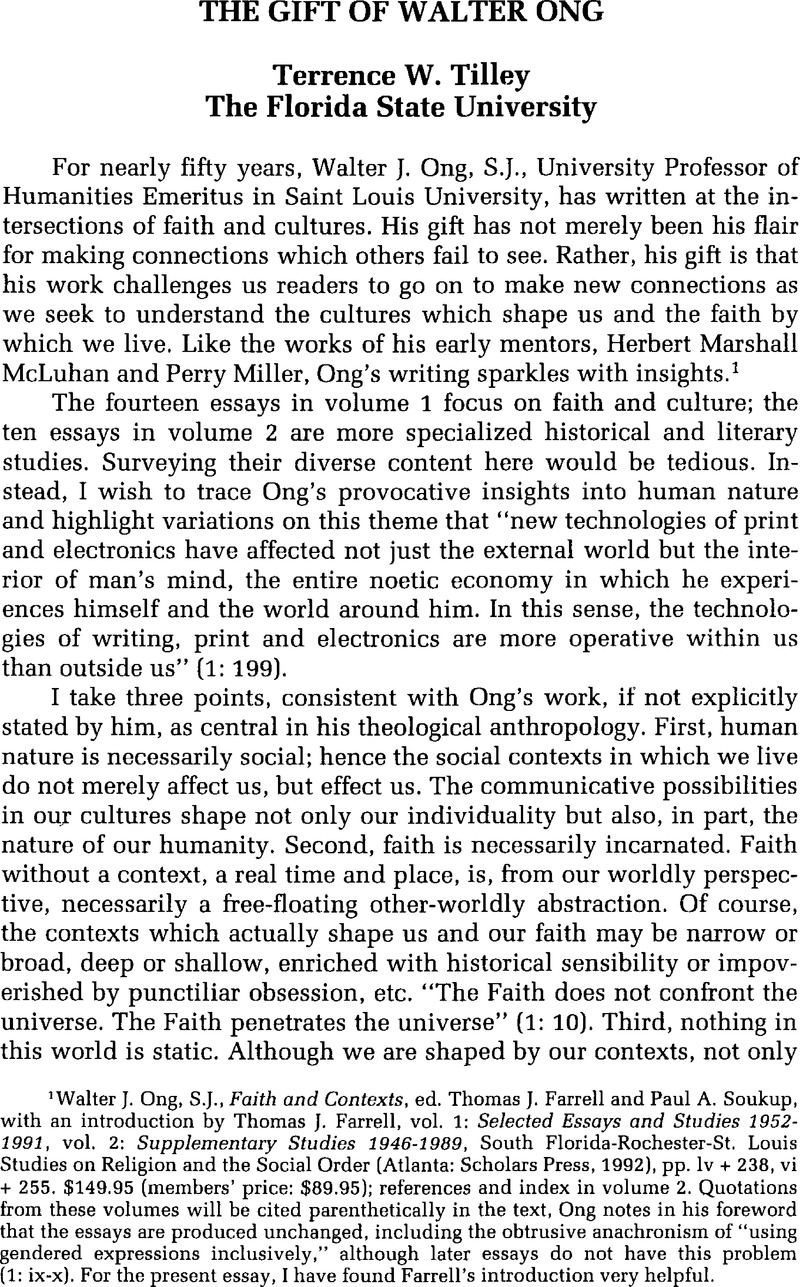No CrossRef data available.
Article contents
The Gift of Walter Ong
Published online by Cambridge University Press: 09 September 2014
Abstract

- Type
- Review Essays
- Information
- Copyright
- Copyright © The College Theology Society 1994
References
1 Walter J. Ong, S.J., Faith and Contexts, ed. Thomas J. Farrell and Paul A. Soukup, with an introduction by Thomas J. Farrell, vol. 1: Selected Essays and Studies 1952-1991, vol. 2: Supplementary Studies 1946-1989, South Florida-Rochester-St. Louis Studies on Religion and the Social Order (Atlanta: Scholars Press, 1992), pp. lv + 238, vi + 255. $149.95 (members' price: $89.95); references and index in volume 2. Quotations from these volumes will be cited parenthetically in the text, Ong notes in his foreword that the essays are produced unchanged, including the obtrusive anachronism of “using gendered expressions inclusively,” although later essays do not have this problem (1: ix-x). For the present essay, I have found Farrell's introduction very helpful.
2 Cargas, Harry James, “The Christian as Scholar—The Humanist as Christian: An Interview with Walter Ong,” Cross Currents 40/1 (1990): 101–102.Google Scholar
3 Toolan, David S.J., “The Male Agony According to Walter J. Ong,” Commonweal, 11 20, 1992, 16.Google Scholar
4 Ibid.
5 Ibid., 18.
6 Ibid.
7 Edwards, Paul, ed., The Encyclopedia of Philosophy (New York: Macmillan and Free Press, 1967)Google Scholar, s.v. “Ramus, Peter,” by Walter J. Ong, S.J.
8 Ibid.
9 Ibid.
10 See Taylor, Mark C., Erring: A Postmodern A/theology (Chicago: University of Chicago Press, 1984), passim;Google ScholarRybczynski, Witold, in his review of Taylor's Disfiguring: Art, Architecture, Religion (Chicago: University of Chicago Press, 1992)Google Scholar in The New York Review of Books 39/19 (11 19, 1992): 43–46Google Scholar, remarks in some surprise that Taylor paid no attention to church architecture in his work. Perhaps a/theology requires an/ecclesiology.
11 See, for example, the one line the centurion gets in the drama of Mark's gospel (Mk 15:39) or the confession of Thomas (Jn 20:28): these speech acts show the oral pattern of recognizing, not textual pattern of interpreting, the world as charged with the Grandeur of God.


